AustLit
-
 Yirra Yakin Theatre Company (http://yirrayaakin.com.au/)See full AustLit entry
Yirra Yakin Theatre Company (http://yirrayaakin.com.au/)See full AustLit entry‘Yirra Yaakin (Yir-raarh Yaarh-kin] which means “Stand Tall” in Noongar language, is one of Australia’s leading Aboriginal performing arts organisations producing award-winning, world-class theatre that is exciting, entertaining, educational, authentic and culturally appropriate.
Overview
“…Yirra Yaakin is my favourite theatre Company anywhere.
Below are some videos of Yirra Yakin productions.
-
Shakespeare's Sonnets in Aboriginal Noongar Language
Yirra Yaakin Theatre Company performing Shakespeare's sonnets that reflect on country and belonging - recurrent themes in Aboriginal country.
//www.youtube.com/embed/IrvDQB9ql3w -
The Cake Man by Robert Merritt presented by Yirra Yaakin Theatre Company and Belvoir
The Cake Man ground breaking play by Robert Merritt, performed by the Yirra Yaakin Theatre Company at the State Theatre, Perth in 2013.
//www.youtube.com/embed/C54a5IMdLe0 -
Kep Kaatijin (To Understand Water) Written by David Milroy in association with Derek Nannup, and directed by Derek Nannup.
In the Noongar language Kep Kaatijin means 'to understand water'. This play preformed by Yirra Yaakin Theatre Company and co-produced with 2013 AWESOME Festival Project Partner, Atlas Iron.
//www.youtube.com/embed/-oDK9netKxo -
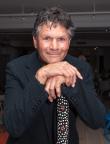 See full AustLit entry
See full AustLit entry'At 23 Richard Walley was chairing the Aboriginal Advisory Board and was actively involved in the formation or operation of the Aboriginal Housing Board, Aboriginal Medical Service, Aboriginal Legal Service, Aboriginal Alcoholism Committee, Aboriginal Sports Foundation and the New Era Aboriginal Fellowship.
In 1978 Richard Walley began his illustrious career in the Arts, when, with three friends, he formed the Middar Aboriginal Theatre. Aiming to take the Nyungar culture from the South West corner of Western Australia to as many people as possible, Middar's success can be gauged by its results.
-
See full AustLit entry
This play examines life in a small country town during two periods, the 1940s and the 1980s, and focuses on the search for identity in the Aboriginal community of Coordah.
(...more) -
See full AustLit entry
'Richard Walley has woven stories about and by Aboriginal people into a loosely-knitted, episodic play. The contemporary story, about life in the Office of Aboriginal Planning is broken by dance sequences which portray the suffering of Aboriginal people since 1788. Segments of poetry are also used to break the action and the result is a fragmented production.' (Source: AusStage website)
(...more) -
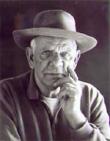 Image courtesy UQPSee full AustLit entry
Image courtesy UQPSee full AustLit entryJack Leonard Davis grew up at Yarloop, Western Australia. His mother was forcibly removed from her parents, and Davis himself later discovered the details of her family history. Sent to the Moore River Native Settlement to learn farming at the age of 14, Davis' experiences there would later provide a foundation for his dramatic writing. After nine months, he left the Settlement. His father's subsequent death created a family crisis, which led to the first of many jobs for Davis. He has worked as a stockman, boxer, horse-breeder, train driver and truck driver.
-
See full AustLit entry
'The friendship between an Aboriginal boy and a white girl raises issues of race in a touching story of two families who seem to have nothing in common, until danger strikes, forcing them to face their prejudices. (Source: Publisher's blurb)
(...more) -
Yirra Yaakin Theatre Company's production of Honey Spot by Jack Davis
Honey Spot is a play about two cultures living together, about two different philosophies on land conservation and about how friendship can overcome racial differences. One of Jack Davis' most celebrated theatrical works, Honey Spot is a piece of quality Indigenous theatre for all ages. See it performed by the Yirra Yaakin Theatre Company.
//www.youtube.com/embed/YIDF6fDlEhE -
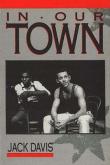 See full AustLit entry
See full AustLit entryThis play is set in a country town, the story centres on the return of an Aboriginal soldier after World War II and the rejection he experiences by the white community.
(...more) -
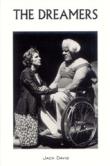 Image courtesy of publisher's website.See full AustLit entry
Image courtesy of publisher's website.See full AustLit entry'With humane irony the Western Australian poet, Jack Davis gives a painful insight into the process of colonisation and the transformation of his people.'
'The Dreamers is the story of a country-town family and old Uncle Worru, who in his dying days, recedes from urban hopelessness to the life and language of the Nyoongah spirit which in him has survived 'civilisation'.' (Currency Press website)
(...more) -
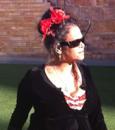 This image has been sourced from Real Time websiteSee full AustLit entry
This image has been sourced from Real Time websiteSee full AustLit entryDallas Winmar is a producer-director with ABC Radio, and a playwright . Winmar's writing career began when she was approached by Yirra Yaakin Theatre Company to write her award winning play Aliwa, which premiered in Perth in 2000.At that time, Winmar was also commissioned by Kooemba Jdarra Indigenous Performing Arts to write Skin Deep.
-
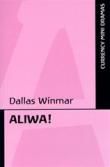 Image courtesy of publisher's website.'Traces the true story of three Aboriginal sisters whose mother was determined to keep her children when officials wanted to remove them following the death of their father. The story is that of the three sisters of the playwright Jack Davis.' Source: Publisher's blurb. (...more)See full AustLit entry
Image courtesy of publisher's website.'Traces the true story of three Aboriginal sisters whose mother was determined to keep her children when officials wanted to remove them following the death of their father. The story is that of the three sisters of the playwright Jack Davis.' Source: Publisher's blurb. (...more)See full AustLit entry -
See full AustLit entry
Dallas Winmar's play explores the experiences of two women in depth, one called 'black' the other called 'white'. We follow these women through numerous incarnations, from small children, to close friends, to blue collar workers, to pregnant mothers, and finally to old women.
(...more) -
See full AustLit entry
'Yibiyung was Dallas [Winmar]'s grandmother and this is her growing-up story. She was one of hundreds of girls swept up in the forced removals of the 1920s and trained to become model domestic servants. But it's Yibiyung's break from this regime and her extraordinary flight across Western Australia which gives her story its rolling, expansive rhythm of survival.' Source: Belvoir Street website, http://www.belvoir.com.au/ (Sighted 01/09/2008)
(...more) -
Dallas Winmore Talks about writing and Yibiyung.
//www.youtube.com/embed/J4oFq_FBPDM -
 Screen cap from promotional trailerSee full AustLit entry
Screen cap from promotional trailerSee full AustLit entryBased on real life events that occurred in 1931, Rabbit-Proof Fence is the story of three mixed-race Aboriginal children who are forcibly abducted from their mothers by the Western Australian government. Molly (aged fourteen), her sister Daisy (aged eight), and their cousin Gracie (aged ten) are taken from their homes at Jigalong, situated in the Pilbara region of Western Australia, at the orders of the Protector of Aborigines, A.O. Neville, and sent to an institution at Moore River to be educated and trained as domestic servants.
(...more) -
'Frank and Vinnie are modern day headhunters. They don't just want any heads, they want famous heads, heads with a price on them. Confessions of a Headhunter is a thought provoking and political exploration of the way in which iconic representations of Australia's history have typically masked indigenous realities and glorified injustice.' Source: Libraries Australia. (Sighted 05/02/2008). (...more)See full AustLit entry
-
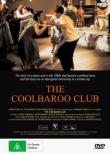 Cover image has been sourced from Ronin Films website.See full AustLit entry
Cover image has been sourced from Ronin Films website.See full AustLit entryIn Perth, Western Australia, the Coolbaroo Club operated for 14 years (1946-1960) as a meeting place and a community focus for the local Aboriginal community. The Club was the only Aboriginal-run dance club in a city which practised unofficial apartheid. Continually harrassed by police with enforced fraternisation bans and curfews placed on them, the Indigenous population was also required to carry identity cards and deal with bureaucratic obstruction. During its lifetime, the Club attracted black musicians and celebrities from all over Australia and occasionally from overseas, among them Nat 'King' Cole, Harold Blair, and the Harlem Globetrotters.
(...more)'The Coolbaroo League was established in 1947 and became a safe haven at a time when harsh restrictions for Noongars and all Aboriginal people did not allow them to enter the central city of Perth. This barred Noongars from social venues and clubs, so a dance club was formed at the Coolbaroo League, this provided a safe place away the persistent presence of the police for Noongar and other Aboriginal people.' (Source: Noongar Culture website)
-
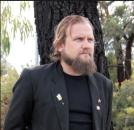 This image has been sourced from the Murdoch University.Glen Stasiuk is a maternal descendent of the Minang-Wadjari Nyoongars (Aboriginal peoples) of the South-West of Western Australia. Glen Stasiuk is director of the Kulbardi Aboriginal Centre at Murdoch University in Perth. The Forgotten was part of Stasiuk's honors project at Murdoch University in 2002. Glen Stasiuk's great uncle Augustus 'Peg' Farmer was one of the first Aboriginal soldiers to receive a war medal. Weewar dramatises the first Nyoongar man to be tried under white law.See full AustLit entry
This image has been sourced from the Murdoch University.Glen Stasiuk is a maternal descendent of the Minang-Wadjari Nyoongars (Aboriginal peoples) of the South-West of Western Australia. Glen Stasiuk is director of the Kulbardi Aboriginal Centre at Murdoch University in Perth. The Forgotten was part of Stasiuk's honors project at Murdoch University in 2002. Glen Stasiuk's great uncle Augustus 'Peg' Farmer was one of the first Aboriginal soldiers to receive a war medal. Weewar dramatises the first Nyoongar man to be tried under white law.See full AustLit entry
You might be interested in...



